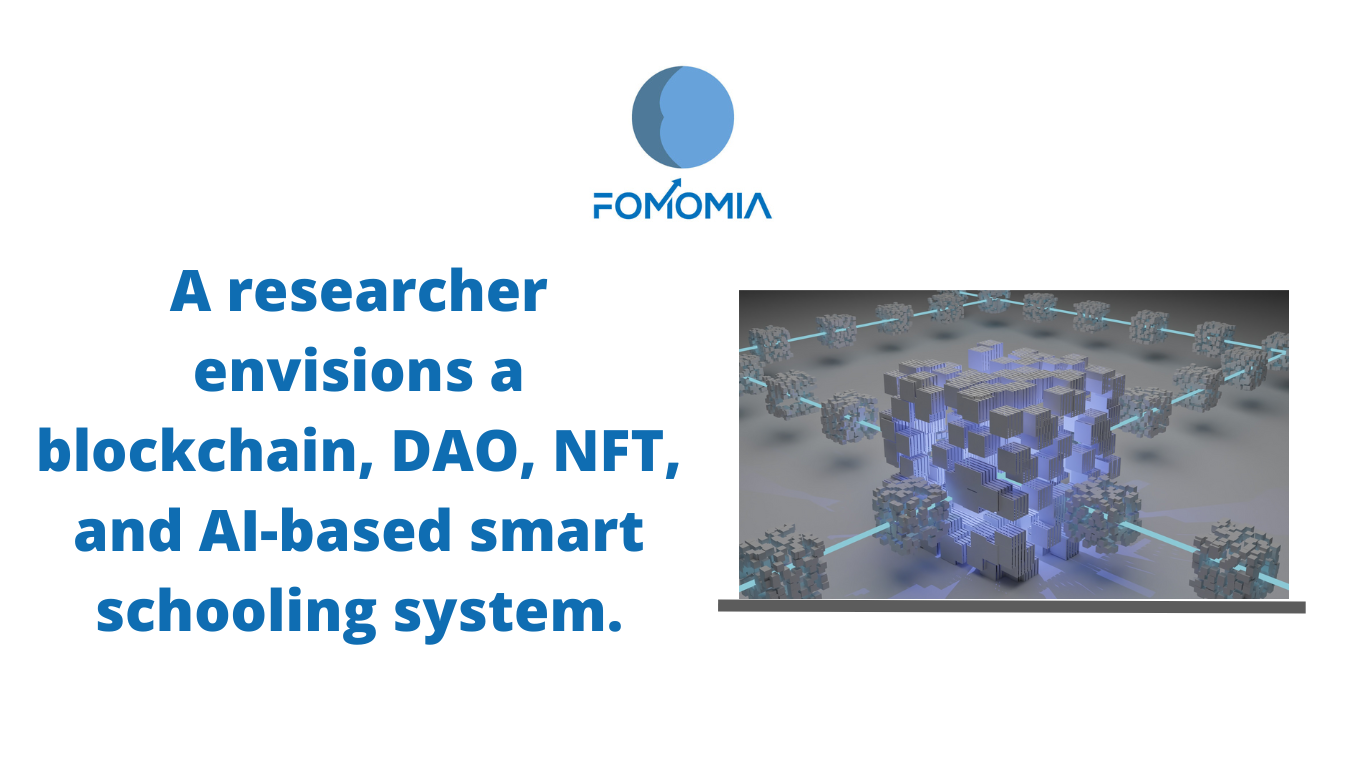A researcher envisions a blockchain, DAO, NFT, and AI-based smart schooling system.
The "Smart Open Education Ecosystem" (SOEE), a multi-tech solution to the issues threatening the conventional educational system, was recently released by Mehmet Frat, a researcher at Turkey's Anadolu University.
The study creates a self-contained educational ecosystem by fusing blockchain, decentralized autonomous organizations (DAOs), nonfungible tokens (NFTs), multimodal learning analytics, and artificial intelligence (AI).
According to a study by Frat that was released on July 25, "Equity, fair opportunity, and access issues can be considered among the most significant handicaps of education in today's world."
Frat suggests a blockchain-based "open education" platform that communicates with students and tailors the learning process using generative AI tools like ChatGPT or similar technologies. Lessons, learning materials, and certifications would be created as NFTs, and a DAO would oversee the entire process.
According to Firat, the ultimate goal of open education is to give everyone tailored learning experiences in addition to democratizing learning and making it accessible. The research paper states that, "Even though the systems we have seen [as] examples of open universities and other structures support this philosophy and approach, they are far from this common goal because they have not yet been able to integrate artificial intelligence, blockchain, and big data."
While not the first attempt to investigate open education on the blockchain, Frat's research is one of the most comprehensive. "The convergence of these technologies can [...] pave the way for singularity in education," the report claims. According to Frat, "this could be the first social organization of humanity to reach singularity."
A singularity in technology is a paradigm where technology develops faster than its designers can keep up with it. The point at which universal access to lifelong free education occurs would potentially be a technologically driven educational singularity.
Universities employ blockchain-based storage to democratize and preserve their data.
However, according to Frat, "there will be 12 major benefits of the SOEE before this distant goal." Accessibility, personalization, educational quality, security, and transparency, democratic governance, the value of intellectual property and content, international cooperation and integration, equality and equal opportunity, the ability to reuse educational materials, the preservation and promotion of cultural and linguistic diversity, innovation and experimental learning in the classroom, and support for academic success and career planning are some of these advantages.
According to Frat, policymakers and stakeholders in education should look into the possible advantages of SOEE more thoroughly.


